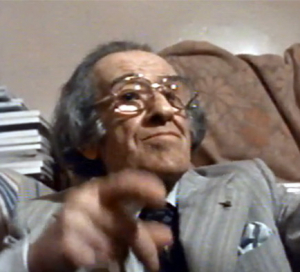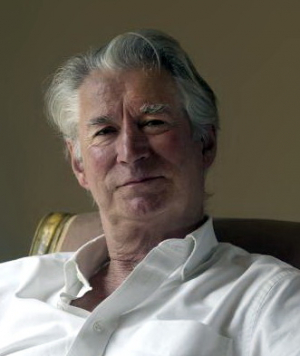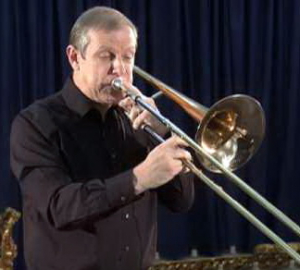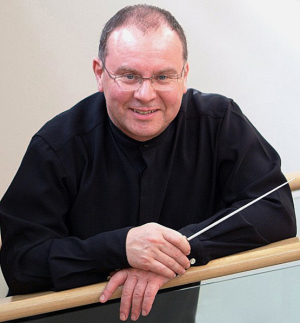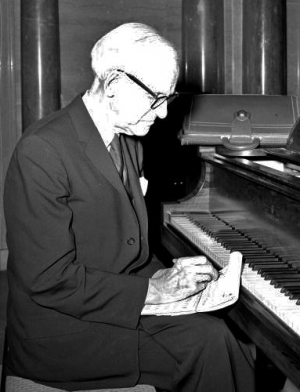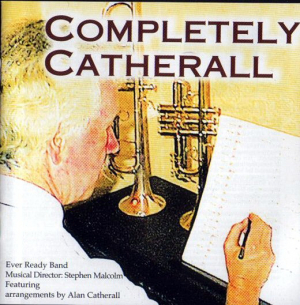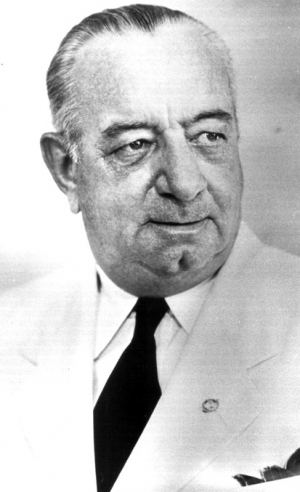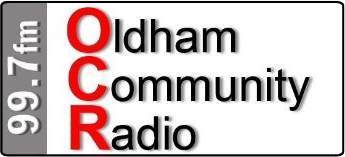
Talk Subjects
Chris Helme
Maurice Zbriger: - July 10, 1896, Kamenets-Podolskiy, Ukraine – April 5, 1981, Montreal, Quebec, Canada) was a Canadian violinist, composer and conductor. He began learning violin as a child, and continued his studies at the conservatory in St. Petersburg, Russia, where he was a classmate of Jascha Heifetz, Nathan Milstein and Mischa Elman.
He left Russia in 1920 and travelled throughout Europe, until he arrived in Montreal in 1924. He quickly found work there at His Majesty's Theatre, in silent film houses, and other venues. He was one of the founders of the Traymore Quartet in 1925, which later became the Traymore Salon Orchestra. He was one of the first Canadians to specialize in Roma music and performed and conducted for a radio show that ran on the station CKAC for 40 years.
Zbriger became a partner in, and eventually the sole owner of, the Montreal Hebrew Delicatessen. Better known as "Schwartz's", this restaurant is famous for its distinctive Montreal-style smoked meat. With the profits from this business, Zbriger spent many thousands of dollars organizing free concerts of his music.
Zbriger was unable to pursue a career as a concert violinist because his wife was in poor health. Mrs. Zbriger was a pianist and co-composed music with Maurice, until her death after 65 years of marriage.
Many of Zbriger's compositions were dedicated to famous people. He wrote The Vincent Massey March (1952) for the Canadian statesman of the same name, while Mother's Lullaby (1948) was dedicated to Charles, Prince of Wales upon his birth. The individuals honoured by Zbriger frequently received copies of the music with letters he commissioned.
In his later years, arthritis in his hands prevented Zbriger from performing publicly, though he continued to compose and conduct until his death.
His Lord Nuffield March c1959 is on this show.
Further information can be found on this link about Maurice Zbriger - https://www.nfb.ca/film/concert_man/
Vincenzo Bellini – 3.11.1801 – 23.09.1835) was an Italian opera composer, who was known for his long-flowing melodic lines for which he was named "the Swan of Catania". Many years later, in 1898, Giuseppe Verdi "praised the broad curves of Bellini's melody: 'there are extremely long melodies as no-one else had ever made before'. A large amount of what is known about Bellini's life and his activities comes from surviving letters
It appears that Bellini died at around 5 pm on 23 September 1835. It appears that Bellini died at around 5 pm on 23 September 1835. Immediately taking charge of arrangements, Rossini began to plan Bellini's funeral and entombment, as well as caring for his estate. He ordered that a post-mortem be performed, following an order which came directly from the King. The distinguished Court-appointed Doctor Dalmas performed the autopsy and reported his findings on the cause of death:
Bellini had succumbed to an acute inflammation of the colon, compounded by an abscess in the liver. The inflammation of the intestine had produced violent symptoms of dysentery during life.
Today, the Museo Belliniano, housed in the Gravina Cruyllas Palace in Catania in Sicily — Bellini's birthplace—preserves memorabilia and manuscripts. He was commemorated on the front of the Italian 5,000 lire banknote in the 1980s and 90s (before Italy switched to the Euro) with the back showing a scene from the opera Norma.
On today show we have a performance of the overture from Bellini’s opera Norma.
Geoffrey Burgon was born in 1941, he came relatively late to music. As a teenager he taught himself the trumpet in order to play jazz, and it was as a trumpeter that he entered the Guildhall School of Music and Drama. He already had a catalogue of compositions and at the Guildhall his urge to compose grew. Eventually he asked his teacher, whether he could make it as a composer. His reply was decisive: ‘Well, you don’t seem to be able to stop, do you?’ After further study he decided to give up performing and devote himself entirely to composition. The years that followed were financially lean, but musically rich.
Then in 1976 came two breakthrough successes. At the same time his ability to engage directly with audiences resulted in growing numbers of commissions for TV and film scores, including BBC’s Dr Who and The Chronicles of Narnia, Granada’s Brideshead Revisited and the film Monty Python’s Life of Brian. The Brideshead Revisited soundtrack went Gold, selling over 100,000 copies, and the music won him his second Ivor Novello Award in 1981(two years after his first for Tinker, Tailor, Soldier, Spy). More recently he was to win BAFTAs for Best Television Music for Granada’s The Forsyte Saga and Channel 4’s Longitude.
Despite commercial success, he maintained the flow of ‘serious’ works – to continuing critical acclaim. There have been major stage works, including an opera and dance scores for the Royal Ballet, London Contemporary Dance Theatre and Ballet Rambert. Later success have included a concerto for the percussionist Evelyn Glennie.
This was followed by a piano concerto for Joanna MacGregor, song cycles, Three Mysteries for soloists, choir and chamber orchestra, an anthem for St Paul’s Cathedral Choir and other new choral pieces
Geoffrey passed away after a short illness on September. 21, 2010. In this week’s show we feature his Narnia Suite which was played as the 3rd Section Regional test piece in 2000.
Dudley Bright was appointed Principal Trombone of the London Symphony Orchestra in 2001 and retired from that position in June 2018. Prior to that, he held the same position with the Philharmonia Orchestra and Halle Orchestra and before that briefly as an associate with the LSO. He is also Professor of Trombone at the Royal Academy of Music.
In 1988, while Principal Trombonist of the Philharmonia Orchestra, Dudley Bright was co-soloist with Philip Smith (then Principal Trumpet of the New York Philharmonic Orchestra) on an album called Principals on which they were accompanied by the New York Staff Band of The Salvation Army.
In 2004 Dudley Bright was the featured soloist on Grimethorpe Colliery Band's recording "The History of Brass Band Music - The Salvation Army Connection" in Erik Leidzen's Concertino for Band and Trombone.
In 2007, he recorded his own solo Life's Command with the International Staff Band of The Salvation Army which was released on a CD called Supremacy.
In 2008, he recorded Erik Leidzen's Concertino for Band and Trombone again, this time with the South London Fellowship Band.
In April 2014, Mr Bright was the guest soloist with The National Youth Brass Band of Great Britain when he performed Arthur Pryor's Thoughts of Love and his own composition Life's Command.
He has composed a number of works for brass, much of it for Salvation Army brass bands.
He has written four large-scale works for the students of the London Symphony Orchestra’s Brass Academy, Other works include Marches and a number of other works including Paean which he wrote in 2009, this is featured on this week’s show.
Christopher Houlding's roots are in Brass Bands. A former member of the National Youth Brass Band of Great Britain, Chris toured Japan with the London Symphony Orchestra at the invitation of Denis Wick while still studying at the Guildhall School of Music & Drama and became Principal Trombone of the Orchestra of Opera North at the age of 21. Having appeared as Guest Principal with most major UK Symphony orchestras, he continues to perform regularly with Superbrass, The Symphonic Brass of London, Philharmonia, Scottish Chamber, MusikFabrik and Mahler Chamber Orchestras.
Professor of Trombone and Brass Ensemble at the Folkwang University of Arts, Essen, Germany and Visiting Tutor at London's Guildhall School of Music & Drama, he has also served as Head of Brass at the Royal Birmingham Conservatoire and Senior Tutor in Brass and International Visiting Tutor at Manchester's Royal Northern College of Music. He is a regular guest Professor with the Gustav Mahler Jungendorchester, European Union Youth Orchestra and National Youth Orchestra of Great Britain.
As Conductor of the Guildhall & Folkwang Brass Bands, he also has a long association with the RNCM and Royal Birmingham Conservatoire Brass Bands including performances at Whit Friday Competitions, in Norway and numerous RNCM Festivals of Brass. He has also assisted brass band development at Manchester's Chetham's School of Music and has worked as Guest Conductor with Grimethorpe, Black Dyke, Brighouse, GUS and bands throughout the UK and Europe including NRW Youth Brass Band, Brass Band Düren, Brass Band Westfalen, Brass Band BlechKlang and Brass Band esBrassivo in Germany.
He has held appointments as Professional Conductor with numerous British brass bands including DUT Yorkshire Imperial (Winners 2005 National Championship First Section), Whitburn, Stocksbridge Engineering Steels, Dodworth Colliery and Polypipe Rossington and has conducted regularly at all major competitions including the British Open, National Championships, All England Masters and Brass in Concert.
He has given masterclasses and workshops throughout the world including New York, Rochester, Bern, St Petersburg, Oslo, Aarhus, Porto, Lausanne, Riga, Cordoba, Ankara and Budapest, appeared as guest artist at International Festivals in Washington, Las Vegas, Nashville, Stuttgart, Hannover, Scandinavia, Aachen and Rostock and as soloist with the Netherlands Symphony Orchestra, Orchestra of Opera North and Durham Sinfonia. His Solo CD entitled 'Houlding his own' is issued on the SRC label while 'Houlding it together', a duet recording project with international colleagues, Joseph Alessi, Brett Baker, Jiggs Whigham, Carol Jarvis, Don Lucas, Niels Ole Bo Johansen, Ben van Dijk and Ansgar Striepens is available on the International Trombone Association website.
As Juror and Adjudicator, he has officiated at the British and Norwegian National Brass Band Championships, Music for Youth, International Wind Competition Moscow, Internationaler Wettbewerb Markneukirchen, Royal Overseas League Music Competition and leading Universities and Music Conservatories. A former President of the British Trombone Society and current Chairman of the International Trombone Association Executive Board, he continues to appear as soloist, conductor, and educator at events throughout the world and is featured regularly as a contributor to well-known Brass Journals.
Geoffrey O'Hara (February 2, 1882 – January 31, 1967) was a Canadian American composer, singer, and music professor.
O'Hara was born in Chatham, Ontario, Canada. He initially planned a military career. O'Hara entered the prestigious Royal Military College of Canada in Kingston, Ontario at age 18 and he trained with the 1st Hussars. He had to abandon his military career upon the death of his father, Robert O'Hara.
He moved to the United States in 1904, the same year he began performing in Vaudeville. He began recording for Edison Records in 1905. In 1913 O'Hara undertook the recording of traditional Indian songs on behalf of the American government. He was recorded on phonograph cylinder lecturing about the complexity of the music as well as singing and playing several types of Navajo traditional songs in 1914. During World War I, he was a singing instructor of patriotic songs for American troops.
O'Hara lectured on music and song writing and held positions at Teachers' College of Columbia University (1936–37), Huron College and the University of South Dakota, where he later received an honorary Doctor of Music degree in 1947. He lectured for the remainder of his life. In 1920, O'Hara helped organize The Composers' and Lyric Writers' Protective League. He also was a board member of the American Society of Composers, Authors, and Publishers (ASCAP), was the president of the Composers-Authors Guild, and served in the United Service Organisations (USO).
He was a National Patron of Delta Omicron, an international professional music fraternity.
n 1919, he married Constance Dougherty from Massachusetts, and together they had two children; the same year, he became a naturalized citizen of the United States.
O'Hara composed over 500 popular and patriotic songs, and hymns. He had some moderate popular music hits in the 1910s with songs such as Your Eyes Have Told Me What I Did Not Know (1913), Tennessee, I Hear You Calling Me (1914), The Old Songs, and Over the Top: Military March (1917).
His one huge hit was his song K-K-K-Katy (1918), one of the most popular tunes of the World War I era. It was sung in both World War I and World War II, occasionally as "K. K. K. K. P."
He was commissioned by the Wilson administration to compose the modern-day version of the Star Spangled Banner.
We are featuring one of his on this week's show.
Enjoy
On this week’s show we feature the march Bombasto written in 1895 by Orion R. Farrar (April 15, 1866-c. 1929). He was an American marching band director and composer. Farrar was born in Indianapolis, Indiana, the son of an English shoemaker named John Farrat and an Indiana boots and shoes shopkeeper named Amanda Wilson. Around 1880, his family moved to Gosport, Indiana, and shortly after to Warren, Ohio. At the age of 19, Farrar enrolled in the famous Dana Musical Institute in Warren, studying theory, composition, and cornet playing. Following graduation, he taught brass instruments and conducted the Institute band for seven years. In 1892 at Onarga, Illinois, he married music teacher Sarah G. (Hannah?) Kennedy. He became a member of Old Erie Masonic Lodge No 3 in 1894 and was active until 1904, when he was expelled for non-payment of dues.
As a march composer, he is most remembered for Bombasto, Indiana State Band, Hi Henry’s Triumphal, and The Telegram marches. Bombasto found an enduring place in the circus band repertoire, as well as in the libraries of municipal bands throughout America. In 1904 he abandoned music and became insurance agent for the Youngstown Dollar Bank. In 1905 he was offered the position of bandmaster of the New Merchants Municipal Band in Lima, Ohio, but rejected it because he already had a high position as agent in Ohio, Indiana, and Michigan for Reliance Life Insurance Co. of Pittsburgh, PA.
He did conduct the Merchants Band at Faurot Opera House Lima, on December 30, 1905, which was his very last known musical activity. In 1912 and 1913 he was president of the Columbus Securities Co. in Indianapolis while residing in New York City, NY. In 1915 he founded Midland Underwriters Association insurance brokerage in Albert Lea, Minnesota, where he also took residence.
The final years of Farrar’s life remain a mystery. He was listed on the 1920 census in Jacksonville, Florida, with his wife Hannah who was born in Ohio c. 1878. Some believe that he died by 1919 because in 1920 his wife settled as widowed music teacher in Long Beach, California. Others say that he was purported to have died in California in c. 1925-1929, but this is undocumented.
The Bombasto march on this programme has been arranged by Alan Catherall and closes this week's show. The recording is taken from a CD which is our featured photograph and illustrates Alan Catherall's music throughout.
In association with - Arts Council England, Freedom Studios, 509 Arts, Calderdale Council and Community Foundation for Calderdale.
Henry Fillmore (1881-1956) was born in Cincinnati, Ohio, the eldest of five children. In his youth, he mastered piano, guitar, violin, flute, and slide trombone. He kept his trombone activities a secret at first, his religious father a composer of gospel songs, believed it an uncouth and sinful instrument.
Henry's mother secretly bought a used trombone for him and obscured, from Henry's father, the son's learning to play the instrument. He began composing at 18, with his first published march Hingham. He loved circus music, American football, and his music-loving dog.
The trombone fascinated him the most because it always led the circus’ bands, but his formal trombone lessons were short-lived, and his unruly teenage humour continued to embarrass his family. Henry’s father agreed to send him to the Miami Military Institute to complete his education.
After graduating from the Institute in 1902 he was given a position in his father’s church hymnal company but was not happy unless he was playing his trombone.
To escape family tensions Henry and his wife joined Lemon Brothers Circus where Henry was responsible for playing the trombone and leading the circus band.
As Henry’s reputation as a bandleader, trombonist, and composer continued to grow over the next thirty years, his love of the music, colourful spectacles, and ringmaster attention of the circus were continually reflected in his new compositions and performances as director of the Shrine Temple Band between 1921 and 1926, and later with his own Fillmore Band for Cincinnati’s Radio Station’s coast-to-coast broadcasts between 1927 and 1930 which featured his musical four-legged friend, Mike, the radio hound. He died in Miami Florida in December 1956.
While best known for march music and screamers, he also wrote waltzes, foxtrots, hymns, novelty numbers, and overtures. One of his best-known marches which he composed in 1916 closes the show for this week.
Talks Available
All the presentations are timed to last up to an hour except where shown - questions are gladly taken after the presentation. All have been presented to male, female and mixed audiences of varying age groups.
-
A Postcard from the Past
The Sunny Vale Pleasure Gardens, Halifax - Yorkshire’s Alton Towers of the…
-
All in a Days Work
Reminiscences from 30 years in the Police Service – (humorous lecture presentation)…
-
Legends from the world of Brass Bands
(Info-tainment – digital slides & music) – 1 hour presentation.
-
A Week in May
A story based on the Murder of Lord Frederick Cavendish (of the…
- Memories of Christmas Past
-
The Road to Publication
In 1979 I was asked to assist in presenting a series of…
-
How we used to live
We have all seen and experienced changes in our lives. Bring back…
- Holiday Memories from the Past
-
Other Folks Rubbish (Not suited to a Zoom presentation)
With a local history theme… – (thought provoking humorous lecture presentation) –…
- So you want to be a Pirate ? - The life of a Pirate was not all that it seemed
- Superstitions, New Year Resolutions and the Origins of St Valentine's Day
- Brighouse at Work
-
Sorry but I am not able to accept any more face to face talk bookings at the present time ONLY ZOOM TALKS


